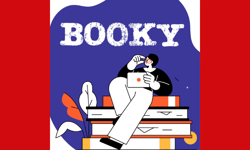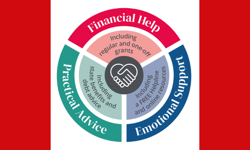Position Vacant – Editor
Must be all-round journalist with writing, editing and production experience, leader, coach and mentor, multi-media guru, financial expert, up-to-date on employment law, comfortable managing advertising and newspaper sales people, handy with a broom.
Hours long, job security poor.
Yes, hands up who wants to be a newspaper editor? The job has changed as much as the media landscape over the past ten years. As owners wrestle with how to make newspaper publishing pay, editors have turned from worrying about what’s on the front page to what’s happening to the bottom line.
That’s the background to our investigation into the challenges and opportunities facing today’s newspaper editors. We assembled a top-rank panel to debate the issues and explore some of the ways forward. They are:
* John Meehan, editor, Mail News & Media in Hull
* Steve Dyson, editor, Birmingham Mail and Sunday Mercury
* Alan Qualtrough, editor, Western Morning News, Plymouth
* Neil Fowler, associate member of Nuffield College, Oxford, who is researching the decline of regional newspapers in the UK. He edited four regional newspapers, was publisher of the Toronto Sun and was until last year the editor of Which? Magazine.
Multimedia
Ask the ‘challenge and opportunity question’ in any newsroom and the most common answer will be multimedia. There is, of course, the internet and appointment-to-view TV but add in Twitter, social networking, blogging and whatever you can do this week with a mobile phone and it’s the obvious answer.
But Dyson believes that the biggest challenge is keeping print titles fresh, relevant and therefore worth buying by the public in the face of the speed of multi-media.
“In my time, the job has changed most by the impact of the internet, both in terms of online news but also in terms of ever-growing digital expectations,” he says.
Meehan explains it as the need to produce, with reduced resources, more and better content across multiple media to meet the needs of an ever more discerning and demanding public in an increasingly competitive environment.
“There are opportunities to reach people with news and information in more ways - and more interesting and exciting ways - than ever before,” says Meehan.
“Our portfolios are more diverse and overall our audience is growing. However, the key business challenge is that an increasing proportion of people are choosing to access our content on screen rather than on the page, but the revenue returns from digital media are so much lower than we have traditionally enjoyed from print.”
And Qualtrough sees web publishing as offering the best opportunities: “This is where there is the real chance to grow audience and subsequently revenue. There is also the opportunity to tell stories in better ways through multi-media.”
Editor’s role
Despite all the challenges, and perhaps because of them, the bigger test is remaining hands-on every day as an editor.
“Ensure you personally contribute to every day’s newspaper, whether that be via leaders, subbing, headline-writing, bill-writing, story-getting, passionate conference leadership or letters page editing… or all of those,” says an impassioned Dyson. “The day none of those things are done by the editor is the day the job hurts most.”
Fowler, who has done his fair share of editing on four daily titles including the Western Mail, knows all about that. “Editors have become subdued by the weight of their burdens. Their roles have become managers of decline, rather than champions of development and ideas.
“Over the last thirty years, editors have, quite rightly, been commercially minded. But the balance has shifted too much – often to the detriment of their newspapers.”
The job of an editor has changed beyond recognition, says Qualtrough. “Now it is more the role of a publisher which involves budgeting and cost control issues, as well as managing and understanding the various channels via which information is transmitted.”
And Meehan is among the breed of editors who have re-invented themselves for the digital age. “Ten years ago, a newspaper editor was required only to be an expert practitioner in print journalism. Now, to do the job well, they must also have rounded leadership skills; commercial instincts; knowledge and skills in digital publishing; and the desire to continually drive the organisation forward in a rapidly-changing market and industry.”
Resourcing
Balancing staff resources while keeping the print product timely and relevant as well as making serious progress for the newspaper brand online will be a good trick to pull off.
“Managing staff in this balance, retaining and nurturing their loyalty to titles at a time when many are having to work cross-title and cross-media will continue to be a challenge,” says Dyson.
“And all this must be achieved in the face of cost-reduction hungry managements who quite rightly have their own challenges of remaining profitable.
“This means fighting tooth and nail for what you, as custodian of the title, feel is sacrosanct in terms of content and publishing strategy, while making hard decisions on reducing costs in other areas.”
Fowler maintains that editors must fight to ensure that monetary value is placed on what they produce. “Some of our largest newspapers, like the Daily Mail and the Guardian, remain focused, well resourced and with generous marketing budgets yet still have significant circulation issues – so it is not just about basic finances.”
Making it pay
Fowler argues that the overall business model is broken. “Advertising is going through a major structural change and will not return to its former self, even at the end of the recession. So there must be some paid-for content. It’s as simple as that.
“Editors must face the challenge of fighting for it and making it valuable enough for people to want to buy it.
“News, broadly, will be free online – and possibly in print. But there is so much more that newspaper editors can produce which readers will not be able to get elsewhere and will be willing to pay for. It will be a challenge to overcome – but it’s the best opportunity of all.”
In the meantime, of course, there is the elephant in the room in the form of the BBC.
Up in Hull, Meehan has been toiling ceaselessly to ensure that the licence-payer funded BBC does not get a free ride into local journalism. “It is particularly galling that, for many regional editors, their major competitor - the BBC - is so lavishly funded and uniquely immune from economic pressures.”
While the BBC appears to have shelved their original plans for ‘local video’, which could have seriously compromised the franchise currently occupied by regional and community newspapers, there is still the threat of the huge BBC operation whirring into action at a micro-local level.
Fowler throws the ball back to the newspapermen. “Editors must form a cohesive argument that persuades government to allow print to compete fairly with it,” he says. “And that’s probably the biggest challenge of them all.”
New news
“We must continually challenge traditional approaches and formats,” says Meehan. “Society is changing rapidly, as are society's requirements for news and information in terms of content, format and platform.
“Bland, predictable reporting is no longer enough, particularly for younger readers. Our news coverage must be so much more than factual. It must demand attention, surprise, entertain, inspire and / or provoke a response. It must also be available via whatever form of media the consumer prefers.”
For Fowler, it’s more an issue of relevancy. “The biggest challenge facing editors is relevancy. Life has changed dramatically and, if editors can publish products that are relevant to their target audiences, there is a chance that readers may be willing to invest both their time and their money in to what is on offer.”
Dyson reflects that the traditional opportunities are just as important as ever. “To resolutely record misdemeanours, to display community joys, to uncover foul deeds, to explain local love matches, to entertain with local stories you'd be proud of telling in conversation, to drive local policies with campaigns on behalf of readers.”
Young readers
I first joined a working party searching for ‘young readers’ in 1975. Those elusive teenagers are now knocking 50 and are probably reading newspapers just like middle-aged people always did.
Now, of course, they’re also reading online just like today’s youngsters who are still steadfastly refusing to read newspapers, let alone buy them.
Fowler shares my realistic approach: “Let’s start with something often forgotten: young people never read newspapers in the numbers we would love to believe they did. So newspapers should not be tokenistic, and must not go down the ‘Young …’ route.
“All good newspapers, and their websites, are daily or weekly textbooks, and are written with a relatively young reading age – so the basics are in place. Make them accessible, digestible – and with content that can’t be found elsewhere.
“The mix of content should include material relevant to families – and that’s from whom younger people will learn the value of newspapers and their websites.”
For Dyson, it’s a case of constantly adapting to the market. “We must change our products regularly to keep up-to-date with information from our emerging readers. I say emerging because a newspaper's regular readers will never be young, but young people will eventually be of an age where they could become regular newspaper readers if properly nurtured.”
What next?
Despite everything, we must go forward with confidence and belief, says Meehan. “There is a real danger that concerns over the future of the news industry become a self-fulfilling prophesy. There is no evidence that there is any reduction in demand for news and information, particularly locally. Indeed the contrary is the case.
“However, we have to find new and different ways to maintain profitable and sustainable businesses built on high-quality and relevant journalism.”
And, remember, says Dyson, that tens of thousands of good, ordinary local people are each spending more than £100 a year on our print products.
“We should not get too overwhelmed by the constant doom-mongers’ attempts at self-fulfilling prophecies.”
Fowler sounds a note of caution. “Editors have to prove to their owners that they can provide saleable content. They’ve not had to do that since advertising was invented and allowed them to live in a world of subsidy. Those days have gone and will not be coming back.”










